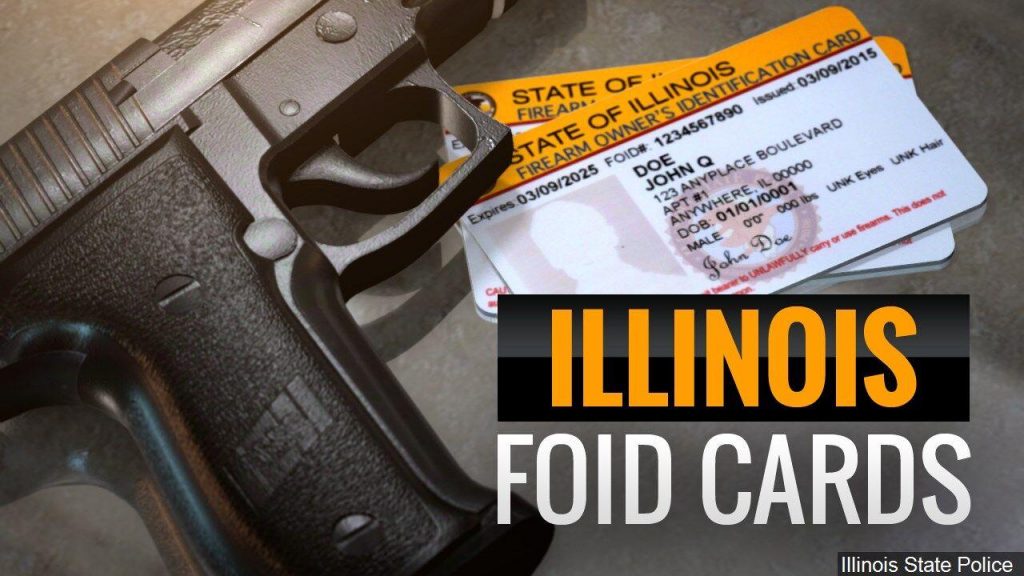
Firearms Transfer Rules Update

Whether at your retirement or death, an often overlooked issue can cause many problems. Whether you have two firearms or 20+, transferring them to another person is a process. I know you understand how someone did that a few months ago. However, like everything else, times have changed.
Firearms Transfer During Your Lifetime
During your lifetime, you may choose to acquire and later transfer any number of firearms.
New FOID Rules
On August 2, 2021, FOID rules changed. Many of the changes deal with record-keeping and identification procedures. However, as to firearm transfers, it is essential to know these rules:
Illinois State Police Firearms Transfer Rules
- If a private party sells a firearm in Illinois to another private party, they must go to the Illinois State Police website and verify that the Buyer has a valid FOID card. Visit the ISP website, click on “Firearm,” “Firearm Owner Identification (FOID Card),” and “FOID Person to Person Firearm Transfer.”
- Seller and Buyer must possess a valid FOID card.
- Seller and Buyer must verify local firearm ordinance requirements.
- Beginning January 1, 2024, the seller must initiate and complete an automated search of Illinois State Police criminal history record information files and those of the Federal Bureau of Investigation, including the National Instant Criminal Background Check System, and of the files of the Department of Human Services relating to mental health and developmental disabilities to obtain any felony conviction or patient hospitalization information which would disqualify a person from obtaining or require revocation of a currently valid Firearm Owner’s Identification Card.
- The Illinois State Police website will generate an “Approval Number.” You must list the Approval Number on the paperwork generated by the Sale of the Firearm.
- Buyers must abide by the State of Illinois waiting period before taking possession of the firearm. The waiting period for a long gun is 24 hours, and 72 hours for a handgun.
- The seller must keep a record of such transfer for ten years from the date of transfer. The record must contain the date of the transfer, the description, serial number, or other information identifying the firearm if no serial number is available.
- Unloading and enclosing the firearm in a case for transport is required.
Firearms Transfer Rules Exemptions
- This law does not cover persons buying a firearm from a Federal Firearms License (FFL), as the records are generated under federal law.
- Persons buying or selling a firearm to family members are exempt under the law. Family members are spouse, son, daughter, stepson, stepdaughter, father, mother, stepfather, stepmother, brother, sister, nephew, niece, uncle, aunt, grandmother, grandson, granddaughter, father-in-law, mother-in-law, son-in-law, and daughter-in-law. However, the family member must still have a valid FOID card to possess the firearm legally.
Firearms Transfers at Death
This issue of disposing of your firearms at your death is an issue I cannot share enough.
Suppose you own a registered firearm at your death. In that case, the Executor of your estate, or preferably the Trustee of your Living Trust, is responsible for legally transferring the gun to your chosen beneficiaries. However, the Probate process determines your surviving heirs at law if you have no estate plan.
So what do you do now? Above all, start your estate plan. However, determining firearms ownership after your death is essential to that plan. Your Trustee can distribute them to a licensed gun dealer. However, any chosen beneficiaries must have a valid license in the state in which they reside.
The law provides a sixty (60) day grace period if the beneficiary does not have a FOID card. Certainly, do not put your Trustee or beneficiary in that position. For instance, it will delay your estate’s distribution and burden your beneficiary during an already difficult time. Moreover, during those 60 days, the statute does not exempt your Trustee from possessing firearms. As a result, the Trustee is now subject to an immediate FOID requirement.
Living Trusts and Firearms
At the end of your life, or at incapacitation, along with your firearms, if you have property or bank accounts in your name, they risk Probate.
- A Will must be Probated. The rule is no one can legally sign your name. Therefore, all assets in your name are subject to the probate process, which averages 18 months and is costly.
- A fully funded Living Trust completely avoids Probate.
- Your financial accounts, life insurance policies, and deferred compensation accounts can name your Living Trust as beneficiary, subject to essential tax considerations.
- A Living Trust estate plan includes Health Care and Financial Power of Attorney documents. It also consists of a Last Will and Testament. A Will is necessary for the guardianship of minor children. It also transfers assets in your name out of Probate.
Contact us today for further information or visit Tuohy Law Offices now.
Tom Tuohy is the founder of Tuohy Law Offices.
LinkedIn
TomTuohy.com
312-559-8400
17W220 22nd Street
Oakbrook Terrace, Illinois, 60181

This blog entry is created for information purposes. Therefore, it is not legal advice. Please do not use this blog as legal advice, which turns on specific facts and laws in specific jurisdictions. No reader of this blog should act or refrain from acting based on any information included in or accessible through this blog without seeking the appropriate legal or other professional advice on the particular facts and circumstances at issue from a lawyer licensed in the reader’s state, country or other appropriate licensing jurisdiction.
Have Your Beneficiaries Been Reviewed Lately?


